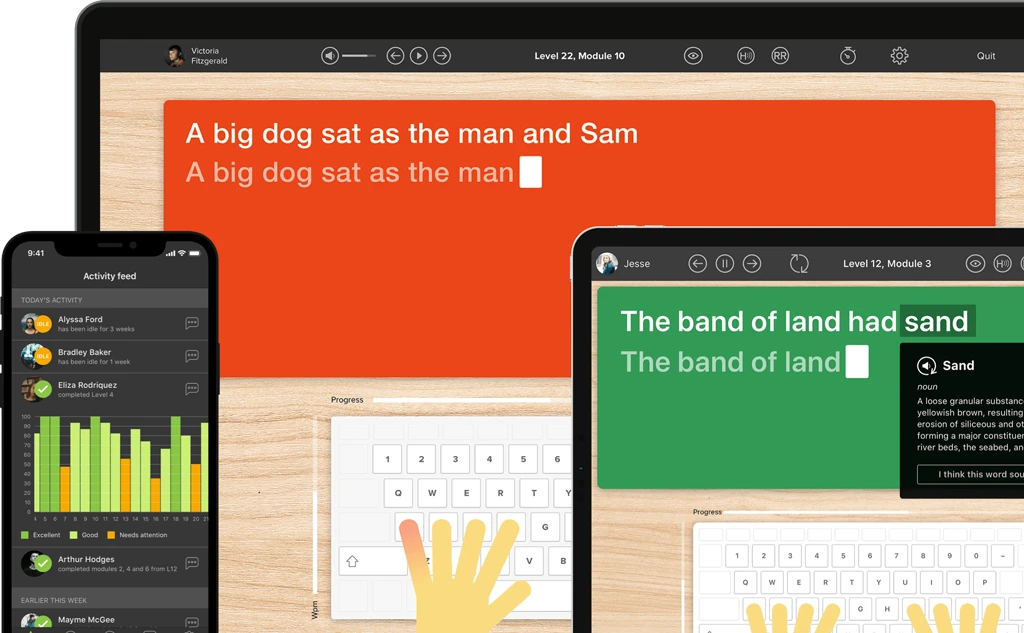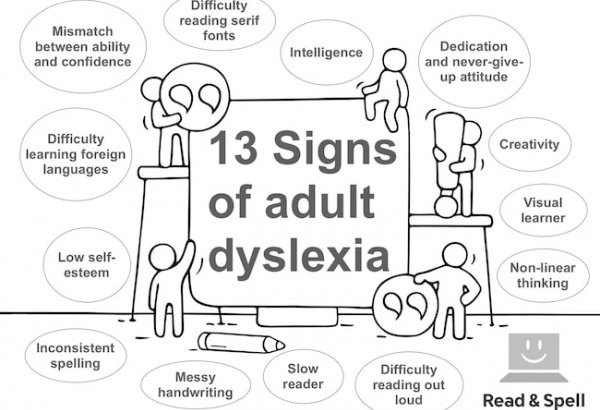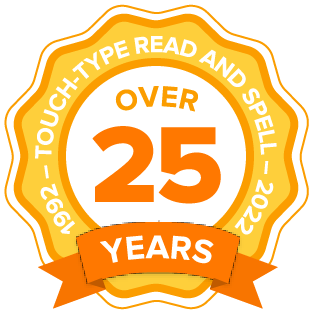5 Literacy blogs

Teachers in adult education know that every learner brings a unique set of skills to the classroom and there is no one size fits all approach. That’s why we’ve put together a list of the top 5 literacy blogs to help educators exchange ideas and keep abreast of the latest research findings.
One of the most important things we learn at school is how to read and write. Literacy skills allow us to be functioning members of society, working and living productive and informed lives. Everything from the directions on a bottle of medicine to a job application requires reading.
That’s why it’s crucial for adults who struggle with literacy skills to have access to education opportunities. Moreover, programs should not only provide reading instruction, but also take into account the emotional and social aspects of returning to school as a mature learner.
We’ve chosen articles written by former teachers, teacher-trainers, researchers, and experts in policy. Considering their experience and opinions can support a more critical approach to teaching and materials development. It’s especially useful to focus on how motivation, self-esteem and confidence building may work differently with adult learners and to recognize the importance of building in practical application for classroom and distance learning activities alike.
If you’re looking for more resources you may like our posts on teaching adults to read, literacy skills in mature learners, spelling for adults, going back to school and volunteering as a reading tutor.
Reading ability and specific learning difficulties
Sometimes literacy issues in adults are the result of an undiagnosed learning difficulty, such as dyslexia, ADHD, or dysgraphia. In these cases, an even more personalized approach may be needed. Recognizing the signs of a learning difficulty is the first step but it’s also important to find the right way to provide information and support to the individual.
Contrary to popular belief, learning difficulties like dyslexia are not a reflection of intelligence, they are simply a different way in which the brain processes information. It can help to emphasize the strengths that come with a condition, such as creativity and problem-solving skills, in addition to finding ways in which the adult can address the impact on literacy skills.
Remember that an adult with undiagnosed learning difficulties may have had negative experiences with school and learning in the past and these emotional blocks may need to be overcome before they can embrace a program later in life.
Learn more in adults with undiagnosed learning difficulties, identifying dyslexia, dyslexia in the workplace and is dyslexia a disability.
Literacy in your first vs. second language
As many adult education programs also teach English language skills, we’ve included two blogs dedicated to ESOL practice. But how is teaching literacy skills to adults who are also second language learners different? One thing the research in applied linguistics tells us is that beyond a certain vocabulary threshold, reading strategies transfer over from our first to second language.
That means that if a student was a strong reader in their first language they will likely become a fluent reader in English too. However, if adult students did not master reading in their mother tongue, they will also struggle to acquire these skills in English. The same is true for writing.
So how can you help? Teach the basics and be tolerant about spelling issues. Once the English alphabet and script have been mastered, sounding out words and sight-reading should be next on the agenda. The lack of 1:1 correspondence in sound-letter mapping in English can be particularly problematic for ESOL learners working on spelling, but a phonics program can help.
It’s also possible to take a more strategic approach to vocabulary and focus on teaching high frequency words first. Learn more in our post on helping ESOL students improve writing abilities in English.

5 Blogs on adult literacy and education
- Working in adult literacy
After many years of working in adult education, Kate retired and began writing in order to share her experience with other literacy teachers. In addition to how-to posts on teaching different skills including math, reading, spelling and writing, Kate emphasizes the emotional issues and social dynamics of teaching older learners. Many of her blogs focus on what she calls the 3 R’s, Respect, Resistance and Reality. She has since stopped posting new articles but this blog offers a wealth of resources that every adult basic skills teacher should explore!
- ESOL, learning and FE
English for Other Learners, also known as ESL or English as a Second Language and ELL English Language Learning is the focus of this blog by Sam Shepard. Sam has been teaching in the UK for over ten years and is also a teacher trainer. He uses this forum to share opinions on classroom practice, technology in education, ESOL research, and the everyday issues faced by ESOL students and teachers in and outside of the classroom. Reading his latest posts you’ll not only get a refresher on some of the basic research underpinning recommended ESOL approaches (including bloomin’ Bloom and his taxonomy) but be provided with a thoughtful critique to inspire you to challenge your teaching practice and take interest in what can seem like the more mundane aspects of teaching literacy skills.
- The Learning Age
Paul Stanistreet writes this blog on adult education and learning. With a background as editor of the magazine Education Leader and Manager and previously of Adults Learning, his writing deals with important themes in adult education, situating them in a wider social and political context. He looks at anxiety and the pressure we put on individuals to continue to be productive well into old-age, and in a recent post makes the case for family learning. Readers will also find recommendations for how governments (particularly the UK government) can do better when it comes to encouraging lifelong learning and critical thinking, along with language education.
- Distance Education Skill Share
This blog deals with common issues in online education including teaching via web-based platforms and training teachers remotely. Jason Guard is an education specialist who works in online and blended learning and unpacks a number of literacy policy recommendations and how they translate to the virtual classroom. In addition to sharing his ideas on electronic resources that bring real-world learning to mature students (including a wonderful post on using the Living Wage Calculator to practice math skills), he shares resources ranging from videos and podcasts to books and conference presentations that will be of interest to anyone in the field.
- The Learning and Teaching Blog
This blog brings together the opinions and recommendations of various teachers and literacy professionals who discuss issues in both adult and childhood education. Whereas the Learning Age focuses on policy in the UK, readers will find US based discussion on topics as far reaching as teaching computer science in schools and the implications of online courses for mature students. There’s something for everyone.
Also of interest
The National Adult Literacy Agency in Ireland puts out an excellent blog that covers a range of issues in teaching reading, writing and math skills to older learners. Posts range from the experience of prison based education service coordinators to distance education programs and helping newly arrived immigrants improve English language and literacy skills.
Literacy Beat is another good read that combines the expert opinions of leading researchers and teachers in adult education and literacy studies. Authors discuss vocabulary learning and teaching strategies, online tools and perspectives on achieving digital literacy in both the US and Europe.

Resources and support
Adult basic education programs are often available at local community centres or online through distance education sites. Because many adult students have busy work schedules and families to take care of, support that can be accessed at all hours and from home is particularly useful. Learn more in our post on adult basic skills.
Touch-type Read and Spell is a dyslexia-friendly literacy tool that improves reading and spelling skills by teaching touch-typing. It does this in a multi-sensory and phonics-driven way that is appropriate for users of all ages, making it a family-friendly solution children can use alongside their parents.
Learning to type re-enforces sound-letter mapping skills, makes sight reading easier and improves spelling. It’s also a great way to build confidence and is a skill adults can put on their resumes.
The best part about a program like TTRS is adults avoid any embarrassment that may come with a more babyish solution. They can tell friends and family they are taking the course to acquire keyboarding and computer skills.
For learners who struggle with reading
TTRS is a phonics-based touch-typing program that strengthens decoding and sight reading skills for children and adults who struggle with reading.
Chris Freeman
TTRS has a solution for you
An award-winning, multi-sensory course that teaches typing, reading and spelling

How does TTRS work?
Developed in line with language and education research
Teaches typing using a multi-sensory approach
The course is modular in design and easy to navigate
Includes school and personal interest subjects
Positive feedback and positive reinforcement
Reporting features help you monitor usage and progress













